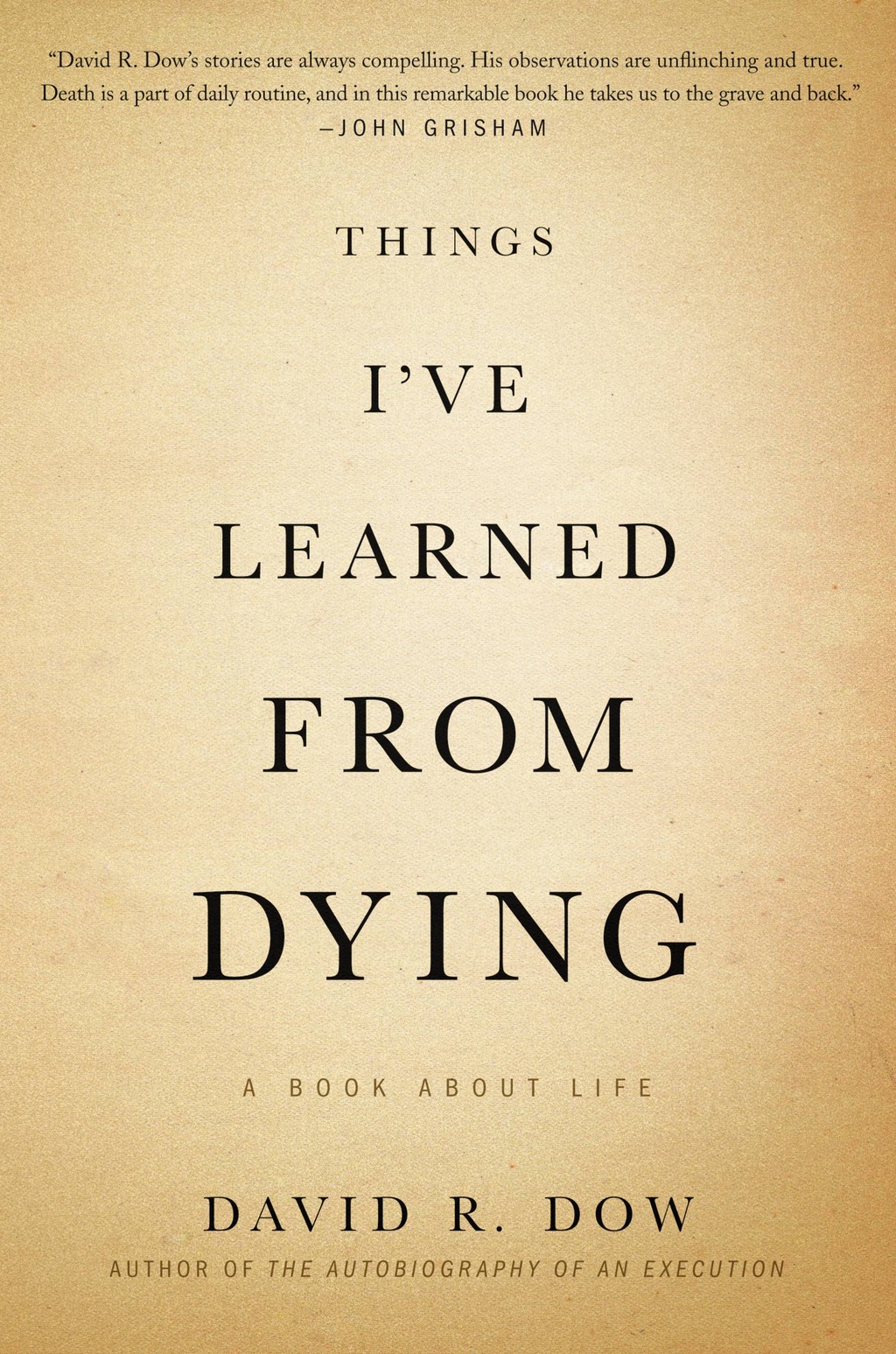
Houston Author David Dow’s Death and Dying Lowdown
Above: Things I’ve Learned from Dying: A Book about Life
By David Dow
Grand Central Publishing
288 pages; $25.00
There’s a certain amount of irony in appending the epigraph “I could write a book about what I don’t know” to one whose title foregrounds its intent to share the lessons gleaned over the course of a career, and one walks away from Things I’ve Learned from Dying: A Book about Life wondering if, in fact, there is anything David Dow has yet to learn. Perhaps the real question is: If there are things Dow still doesn’t know, what hope do the rest of us have?
Things I’ve Learned from Dying is an energetic three-part memoir delineated into sections titled “Beginnings,” “Middles,” and “Endings.” Dow, a professor of law at the University of Houston and of history at Rice University, as well as founder and director of the Texas Innocence Network, details his father-in-law’s death from a quickly metastasized melanoma, his family’s beloved Doberman’s death from acute liver failure, and one of his many clients’ final years on death row and eventual execution. True to its title, the book is peppered with sentences structured around the phrase, “One thing I’ve learned,” such as: “One thing I’ve learned is that there is a time to be silent and there’s a time to hold nothing back. What I might not have learned is which is when.”
Taking some liberties with its timeline and compressing legal cases that spanned the better parts of decades, Dow explains how to argue a death penalty case in Texas, along the way bringing to light some of the nuances of the appeals system—and some of the ways in which he longs for even more nuance. He outlines the four stages of a death penalty case: the trial and state court appeal come first, followed by the state court habeas proceeding; after that comes the federal habeas appeal; the final stage is what Dow describes as “all the last-minute freneticism when death penalty lawyers try to think of anything they can to save their client’s life.” In Things I’ve Learned from Dying, we enter death row inmate Eddie Waterman’s case at the third stage. Dow’s ruminations about representing Waterman before the 5th U.S. Circuit Court of Appeals show him at his most entertaining and opinionated:
People who think bogus legal proceedings happen only in places like Iran or China apparently haven’t been to Texas.
It hasn’t always been this way. … But decent judges have been replaced by bureaucratic hacks who reach results that melt their political butter no matter how much violence they have to inflict on legal principles on the way to getting there.
In the section titled “Middles,” Dow recounts offering advice to a younger colleague who is distraught after the execution of his first client: “Work on developing a cold cold heart, pal,” he says, invoking Hank Williams. But while there is evidence here of professional numbness—occasional decisions based solely on detached experience and expertise—this is not the narrative of someone unaffected by a life spent with the dying. Throughout the memoir, using passages from a journal he kept during his father-in-law’s illness and recreating other scenes from memory, Dow meditates on the instant between life and death. “One thing I’ve learned,” he writes, “is that beginnings are unambiguous, but endings are not.”
His story’s overlap of human, canine, legal and familial loss ultimately leads Dow to acknowledge the difference between the individual and the universal: “The deepest knowledge, I’ve learned, can be awareness of the chasm separating you from someone else.” In convincing prose, Dow shows what such lessons cost.


